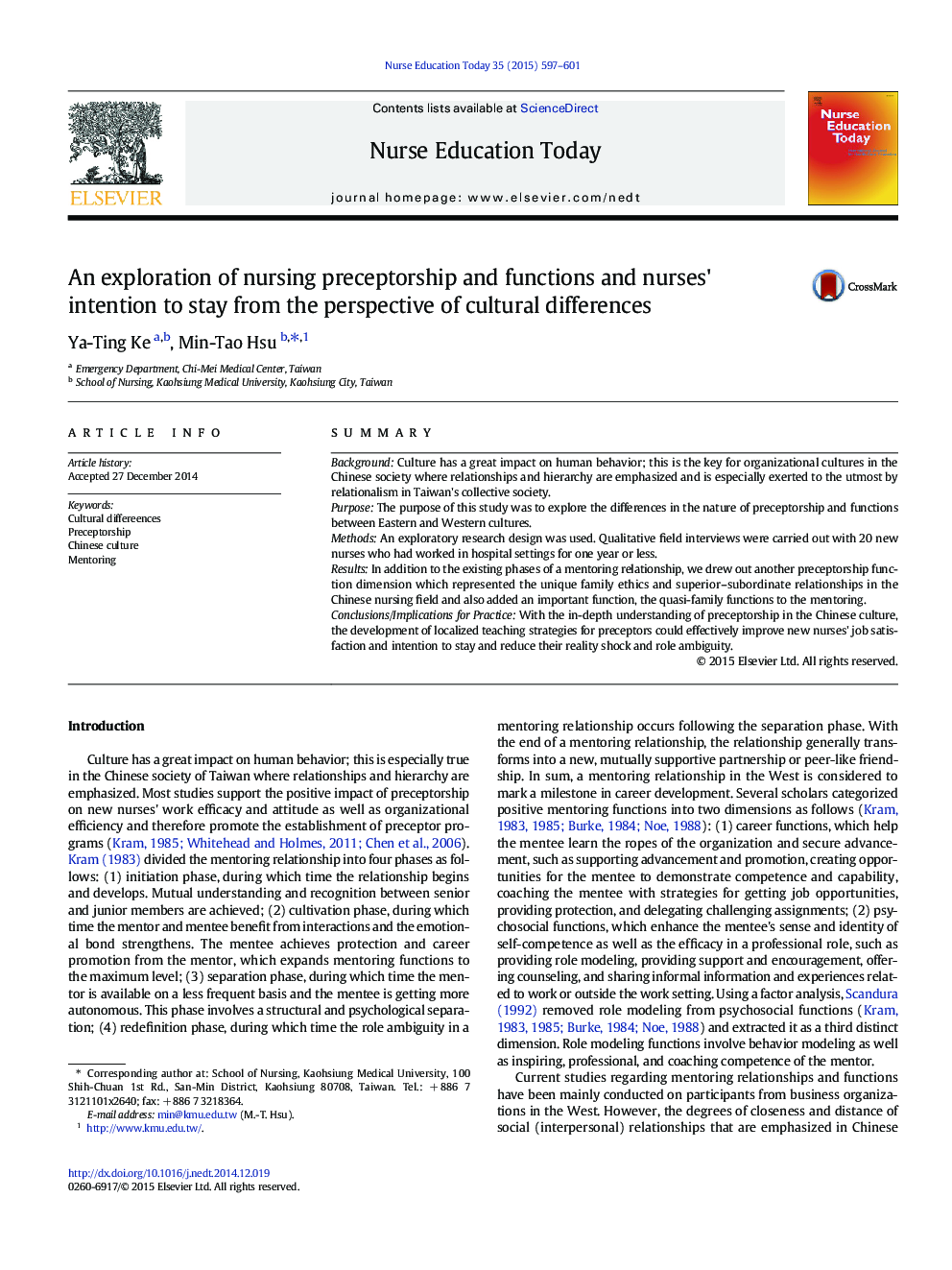| Article ID | Journal | Published Year | Pages | File Type |
|---|---|---|---|---|
| 368050 | Nurse Education Today | 2015 | 5 Pages |
SummaryBackgroundCulture has a great impact on human behavior; this is the key for organizational cultures in the Chinese society where relationships and hierarchy are emphasized and is especially exerted to the utmost by relationalism in Taiwan's collective society.PurposeThe purpose of this study was to explore the differences in the nature of preceptorship and functions between Eastern and Western cultures.MethodsAn exploratory research design was used. Qualitative field interviews were carried out with 20 new nurses who had worked in hospital settings for one year or less.ResultsIn addition to the existing phases of a mentoring relationship, we drew out another preceptorship function dimension which represented the unique family ethics and superior–subordinate relationships in the Chinese nursing field and also added an important function, the quasi-family functions to the mentoring.Conclusions/Implications for PracticeWith the in-depth understanding of preceptorship in the Chinese culture, the development of localized teaching strategies for preceptors could effectively improve new nurses' job satisfaction and intention to stay and reduce their reality shock and role ambiguity.
